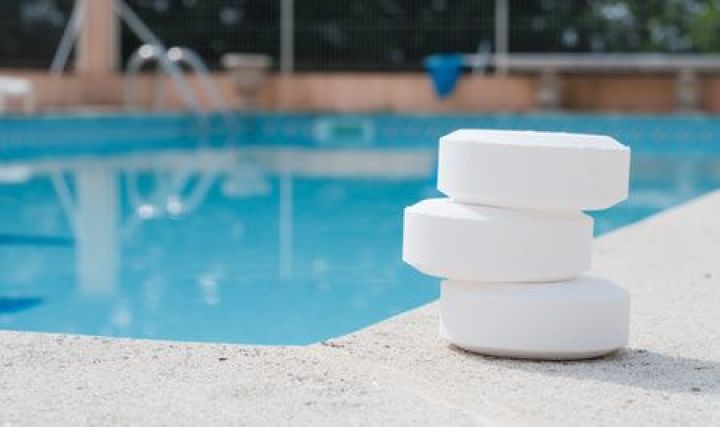
What impact does too hot water have on the pool?
While swimming pool water is appreciated by bathers when it is hot, care must be taken to ensure that the heat does not damage the liner and does not limit the performance of the treatments. Water temperature has an impact on water quality and balance. So, what are the consequences of too hot water on the pool and how to define the temperature of the pool water so as not to damage the components of the pool and that the treatments remain effective?
What are the effects of too hot water on the pool liner?
Swimming pool water that remains at too high a temperature for several days risks damaging the liner. How? The heat of the water softens, relaxes the material of the liner, which becomes looser and noticeably expands. When the water cools, the coating shrinks but creases can form and stay permanently in place. This is why it is advisable in hot regions or when installing a heat pump or another pool heating method to choose a high temperature liner which is more resistant to this type of attack (up to 33°C ).
What are the effects of too hot water on the treatment of the swimming pool?

When the pool water reaches 28°C for several days, the water becomes cloudy and cloudy. Micro-organisms, bacteria and algae see it as a good opportunity to develop and proliferate generously. This is because the treatment products become less effective when the pool water is at 28°C and above, especially chlorine which only acts at 20% in these circumstances. UV-type treatments are more effective in this case.
Another factor sensitive to high temperatures (and variations) is the pH of the water. The warmer the water, the higher the pH will increase. This promotes the development of algae, limestone attaches more easily to equipment, to the liner and swimmers may feel itching on their skin and their eyes sting.
Evaporation is also an accentuated phenomenon when the water is hot. It occurs more particularly at night, when the temperature of the water is higher than that of the air. The larger the surface area of the pool, the greater the evaporation.
Too hot water can be linked to climatic conditions, heat waves, in this case solutions must be put in place to control the temperature of the water. water, cover the pool, add water if necessary. When the heat of the water is generated by a swimming pool heating mode, it is necessary to stop or limit the heating in order to maintain a comfortable heat for the swimmer but which does not affect the proper functioning of the swimming pool and the balance of the treatment.
We have just seen that too hot water can deteriorate the elements of the swimming pool and make the water treatment products less effective. But what about swimmers? What is the correct pool water temperature for swimmers?